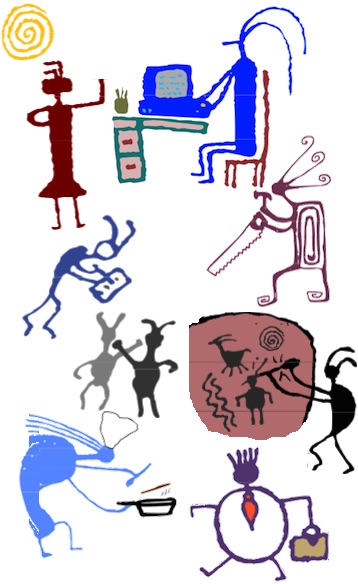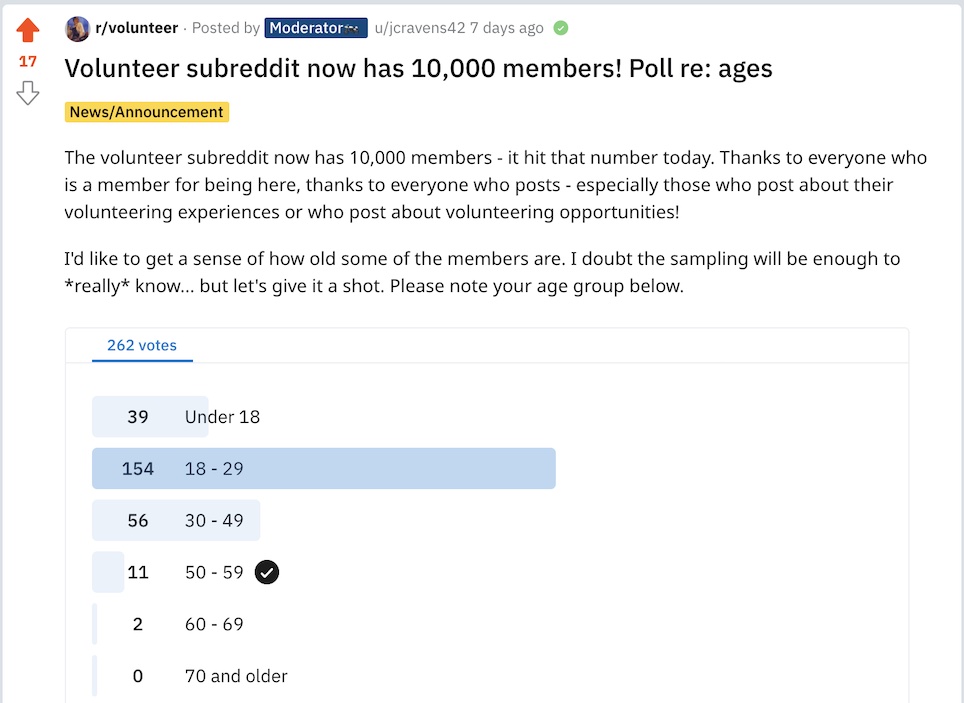Someone posted to one of the many online communities I’m on. She’s with an organization that promotes awareness about a particular health issue and her program involves volunteers that have that particular health issue. She said the nonprofit was “relaunching its volunteer program after years of chaos and mismanagement.” She noted:
We are a global nonprofit and we have more volunteers than we have assignments for. My concern is this: in relaunching our volunteer program and disappointing people who want to be useful to our organization but there are not roles for them. Most of our volunteers are also patients who suffer from (this) syndrome and they want to feel like they are connecting to other people in their community. It’s a delicate balance between wanting to engage people who suffer from this very debilitating condition and making sure we have the right volunteers for the projects. Therefore, how do you successfully run this volunteer program with a large number of volunteers and still manage to obtain quality candidates?
I responded:
This is a more common problem than you might think. Many Habitat For Humanity programs have far, far more people that want to volunteer than they can possibly accommodate. Same for a lot of food banks, in non-COVID-19 times. It’s a big issue for most online volunteering matching services – there are far, far more people who want to volunteer online than there are roles and tasks available on services like the UN’s Online Volunteering service. I know that when I post an online opportunity to VolunteerMatch, I have to take it down in about 48 hours because I always get more than enough applicants.
Many Habitat chapters limit the number of times a person can volunteer in that chapter in a given time, in order to make sure as many people as possible get to volunteer. They say this upfront so that people understand why they don’t get to volunteer EVERY time there is a build. That means keeping track of how many times each person volunteers in a given period.
Another option is to let volunteers know about other places they can volunteer while they are waiting for an opportunity with your nonprofit. Those that are good at keyboarding might like to participate in the many historical transcription projects available through the Smithsonian or the Library of Congress. I have a list of all these (and MANY more) here:
http://www.coyotebroad.com/stuff/findvv.shtml
Here is a list of online volunteering opportunities – could you create some of these roles or activities at your program, to expand the number of opportunities for volunteers?
Many programs that struggle to recruit volunteers are astounded that there are programs that have “too many” volunteers, that have to turn away people that want to volunteer because they already have more than enough and that don’t have enough roles and tasks for volunteers. The reality is that volunteer recruitment is relatively easy; it’s much harder to respond to volunteer applicants quickly, onboard new volunteers quickly and provide new volunteers the support they need, and THOSE are the reasons most programs that don’t have enough volunteers don’t have enough volunteers.
If you don’t have enough assignments for all the people that want to volunteer with your program, consider having a list ready of places to refer them to, and make it clear, when referring them elsewhere, if you are telling them that they shouldn’t expect to get to volunteer with your program any time soon, or ever, or if you are giving them options they can do but that, someday, you will use their information on file to contact them about immediate openings.
For people that want to volunteer onsite that I cannot accommodate at whatever organization I’m working at (they lack the skills I need, there are no openings, etc.), I refer them to:
- Meals on Wheels (they are always in need of volunteers).
- The local food bank network.
- In the summer, whomever is managing the free breakfasts or lunches in local parks (easy to find with a Google search).
- The nonprofit that manages the local farmer’s market (usually the CSA program, since they can accommodate people that want to volunteer in groups).
- Solve Oregon.
- VolunteerMatch.
- AllforGood.
- A web site I developed especially to help people find volunteering opportunities.
You could do the same: compile a list of these programs or similar programs in your own community and be ready to refer any volunteers you turn away to these resources, so that people can get into volunteering as immediately as possible. It promotes your nonprofit as one that cares about the larger community, not only its stated mission, and one that cares about volunteerism, in general, overall, and not just for its own organization. It leaves the person with a positive view of your organization, even if they cannot be a part of it right now. Compiling this list of places to refer volunteer candidates you cannot accommodate is a great task for a volunteer, by the way…
If you are a program that is in need of volunteers, consider contacting your local Habitat for Humanity or large, well-known food-giving program that you think might have more than enough volunteers and asking them if they would consider referring the volunteers to you that they have to turn away. This is especially true if you can accommodate or need a group of volunteers; group volunteering gigs are some of the mostly highly-sought after by potential volunteers.
Do you do this already at your organization? Or is there something that prevents you from doing so? Comment below:

If you have benefited from this blog or other parts of my web site and would like to support the time that went into researching information, developing material, preparing articles, updating pages, etc. (I receive no funding for this work), here is how you can help.
Also see:





